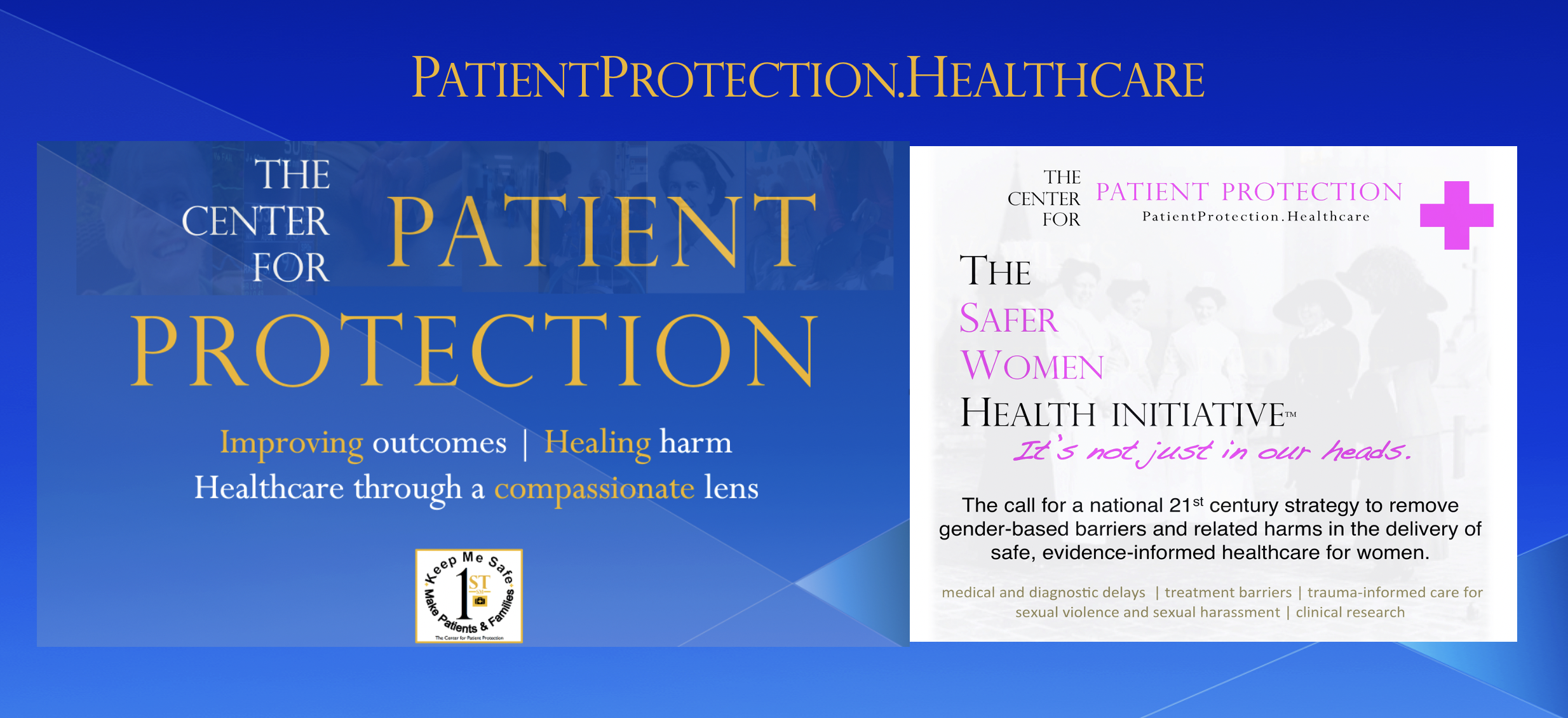- Home
- Articles of Interest
Articles and Reports:
When Hospitals Do More Harm than Good
(Huffington Post)
by Kathleen Finlay

Canadian Doctors Should Learn to Apologize
(Huffington Post)
by Kathleen Finlay
Why We Need To Speak Up For Safer Care in Hospitals
(Huffington Post)
by Kathleen Finlay
Hospitals Need More Common Sense, Not More Money
(Huffington Post)
by Kathleen Finlay
Eric Duncan’s Death Shows the Gravity of Medical Errors
(Huffington Post)
by Kathleen Finlay
So You’ve Become a Patient Safety Statistic – Now What?
(Pro Publica)
by Marshall Allen

Stunning News On Preventable Deaths In Hospitals
by Leah Binder
Senator Boxer’s Odd Timidity On Patient Safety
(Forbes)
by Leah Binder
(Mayo Clinic)

A New, Evidence-based Estimate of Patient Harms
(Journal of Patient Safety)
by John T. James
(Longwoods.com)
by Rob Robson and Elaine Pelletier
Kathleen Finlay’s comments in Healthy Debate
on apology, ageism, medical errors and hospital cover-up.
Report by Office of the Inspector General | U.S. Health and Human Services Department | On Adverse Hospital Events involving Medicare Beneficiaries
The Dangers of Seroquel …a personal perspective
[evp_embed_video url=”http://mpegmedia.abc.net.au/news/730/video/201311/730m_Seroquel_2711_512k.mp4″ width=”250″ height=”150″]This video is from one of the best ever mainstream news reports on the dangers of Seroquel (quetiapine). As I wrote in The Huffington Post, this drug has been linked to numerous incidents of cardiac arrest and sudden death.
The clinical abuse of drugs like Seroquel is a major problem in hospitals and long-term care facilities in Ontario. It was repeatedly given to my mother for purposes outside the drug-maker’s approved use and without her, or my, consent on dozens of occasions at two hospitals. There was never any proper disclosure of the dangers and risks involved. On one occasion it was given together with morphine, during a critical time in her recovery, and despite warnings that combining such drugs can lead to respiratory depression. In less than three hours, she stopped breathing and sustained a respiratory, and then cardiac, arrest. The hospital refused to take any responsibility for its actions and initially concealed alarm print outs by the monitor at the time of the event.
Seroquel requires careful monitoring and informed consideration by patients and family members when consent is sought by clinicians for its use. Generally, the law requires consent and that the consent be based on being informed of the risks as well as the potential benefits. This requirement, however, is not always followed, as I, and so many other families, have discovered.
When faced with a decision about this drug speak up and question. Do your own research. Sometimes there is just one chance to avoid tragedy. Don’t allow yourself to be placed in the position my mother was — or I was as her substitute decision-maker.


